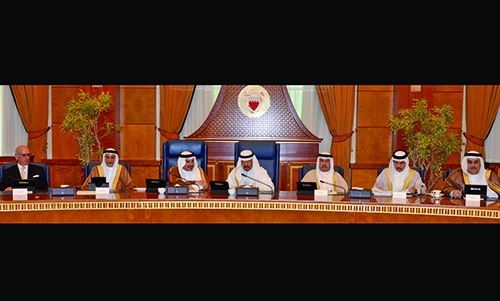Cabinet’s new law regulates real estate development sector
Manama: With a view to regulating the real estate development sector, the Cabinet yesterday endorsed a new draft law, following a recommendation by the Executive Committee, chaired by HRH Crown Prince. Later it had been referred to the Legislative Branch in accordance with the constitutional and legal procedures in force.
The draft law aims to bridge the existing fissures in the real estate development sector for preserving the rights of investors and stakeholders. It is also for ensuring fairness for all relevant parties through regulating sales on the map, joint ownership of real estates, mortgage insurance and real estate disposition and acquisition. The law also aims to regulate the affairs of all parties involved in the real estate sector, including developers, appraisers and brokers, among others.
The Cabinet session, chaired by Prime Minister HRH Prince Khalifa bin Salman Al Khalifa at Gudaibiya Palace, also reviewed the measures taken so far to rectify the legal situation of the boards of trustees and boards of directors of companies, public agencies and institutions and specialised committees whose terms have expired.
The session, also attended by Crown Prince, Deputy Supreme Commander and First Deputy Prime Minister HRH Prince Salman bin Hamad Al Khalifa, approved the procedures to ensure those panels complete their missions within the timeframes, as recommended in the memorandum presented by the Deputy Premier and Deputy Chairman of the Civil Service Council Shaikh Khalid bin Abdulla Al Khalifa.
Meanwhile, Cabinet approved the issuance of the fourth National Telecommunications Plan, which aims to implement the government’s strategy and policies in the sector to maintain and build on the Kingdom’s leading status in the telecommunications and transportation sector.
The three-year scheme, highlighted in the memorandum presented by the Minister of Transportation and Telecommunications, aims to develop the infrastructure of the very-high-speed broadband service, consolidate sustainable competitiveness in mobile communication services, ensure the optimal use of the frequency spectrum and develop the infrastructure of the wireless network.
It also aims to ensure the security of networks and electronic communication service, increase the capacity and options of international connectivity, facilitate access to Internet services, promote the Kingdom’s status as a regional information and communication technology hub and review the telecommunications law.
Related Posts

